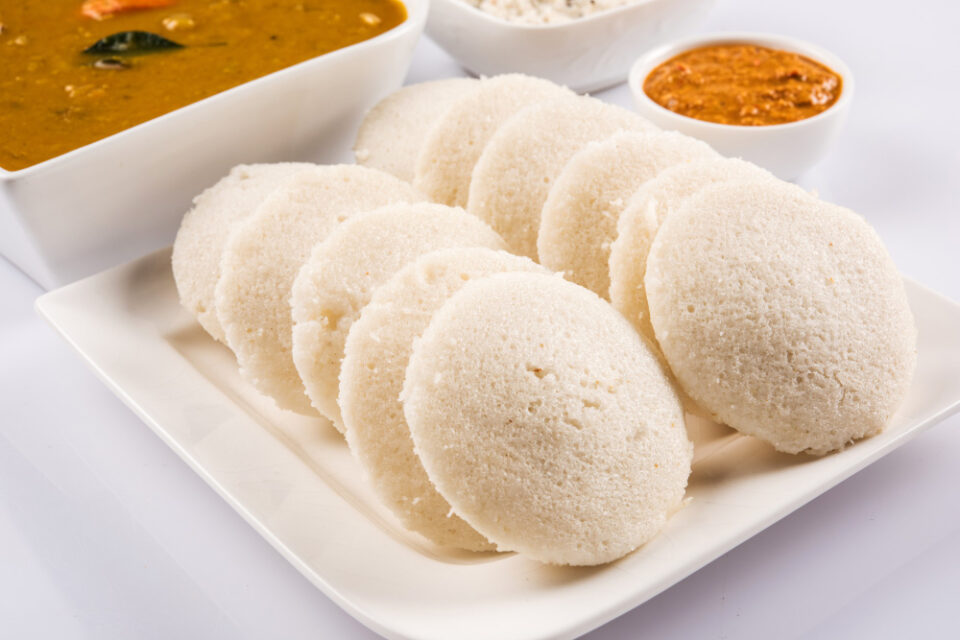If I had to choose one dish to represent the collective spirit, emotional landscape, and digestive intelligence of South India, I wouldn’t hesitate for a second—it’s the humble, cloud-like, slightly tangy, eternally dependable idli.
Over the years, I’ve seen patients with all kinds of ailments—from burping more than a malfunctioning coffee machine to constipation that could qualify for a Guinness World Record. And time and again, when I probe into their diet, there’s either an overdose of packaged nonsense or a complete absence of warm, fermented, gut-loving foods. That’s when I tell gently, “Go back to idli.”
One woman, a teacher in her 40s with persistent acid reflux, said, “Doctor, everything I eat comes back up—except idli.” She said it with the reverence of a priest in a temple. I replied. “Because your stomach recognises it as home.”
See, idli is not just food. It’s a morning ritual, a grandmother’s memory, a mother’s love, and in some way, a probiotic whisper to your gut that all is well.
Ayurveda has always suggested that fermented foods aid digestion, much like a loyal friend helps you move house. Idli, fermented overnight, is packed with beneficial microbes that gently nudge your intestines into action. It’s sattvic, easy to digest, and tridoshic in balance (yes, all three doshas—Vata, Pitta, and Kapha—get along when idlis are around). As my dentist wife says, “Idli is the food you can give from a toothless child to a toothless elder.”
One day, a techie in his 30s walked in, bloated, fatigued, and with a food journal that read like a fast-food catalogue. I said, “Try eating homemade idli for breakfast for the next two weeks—no sauces, no ketchup, no drama. Just idlis with coconut chutney or ghee.” He was not ready to accept. Two weeks later, he bounced in, belly flatter, with better energy. “Doctor, I’m dating my idli now,” he joked. “I wake up looking forward to breakfast.”
I told him idli is like a good relationship—low-maintenance, comforting, and never gives you heartburn.
It’s not just about digestion. Let’s talk immunity. In Ayurveda, agni (digestive fire) is the root of health. A weakened agni leads to the accumulation of ama, a toxic, sticky residue that gums up your system like traffic at the Silk Board junction. And what boosts your agni gently and regularly without overburdening the system? Light, warm, fermented food. This is idli. Made with rice and urad dal, naturally fermented, steamed—not fried or over-spiced—it’s the poster child of agni-friendly eating.
During the COVID-19 pandemic, I noticed something interesting. In my practice, families who stuck to their traditional diets—such as idlis for breakfast, hot meals, and minimal processed junk—bounced back faster from infections. One elderly lady who recovered from COVID with minimal symptoms told me, “Doctor, I had two idlis with nalla ennai (gingelly oil) every day, just like my mother used to give.” I scribbled in my diary: “Idli – the grandmother-approved immune booster.”
Studies show fermented foods increase microbiome diversity, improve nutrient absorption, and even elevate mood. Yes, idlis might be your antidepressant in disguise: no side effects, no prescription, just a soft, warm disc of gut-loving genius.
Let’s not forget the sociology of idlis. In Bengaluru, idli is not just breakfast—they’re a community. From darshinis on every corner, idli unites people across caste, creed, and calorie counts. There’s something deeply equalising about standing next to a millionaire and an auto driver, both biting into the same soft idlis at 8 AM at CTR.
Let’s appreciate the varieties! There’s the Thatte idli—flat and wide like a sleepy Sunday, perfect with butter melting on top. Then there’s Rava idli—a wartime invention, born out of rice shortage, now a classic. Button idlis floating in sambar like tasty planets. Idli upma—the genius leftover makeover. My patient, a newly married man learning to cook, once told me, “Doctor, idli upma saved my marriage.”
I believe him.
But the secret of the perfect idli? It lies in the ratio of rice to urad dal. Ask any old Bangalore auntie and she’ll quote it like scripture—3:1 for fluff, 4:1 for firmness. And it must be stone-ground, not brutally blended. And fermentation? It’s a living art. Temperature, timing, even the mood of the batter (I swear!) affect the outcome. A sulking batter gives hard idlis. A joyful, bubbly one gives you pillows of bliss.
From an Ayurvedic lens, idli ticks every box. It’s soft (great for vata), not spicy (good for pitta), and light (Kapha won’t complain). It doesn’t provoke, it pacifies. It is especially recommended for convalescence, post-fever meals, and anyone recovering from gastrointestinal ailments.
Now, of course, not all idlis are the same. Instant mixes? Those are the junk-food cousins wearing a borrowed identity. Most of them lack proper fermentation, use additives, and are as close to real idlis as a cola is to coconut water. If you can’t make it at home, find a place that respects the idli as a living, breathing thing. Yes, I said breathing. Fermentation, after all, is life in motion.
My prescription. No tablets, no tonics. Just this.
– Make idli batter at home once a week. Let it ferment slowly, without a rush.
– Use unpolished rice and whole urad dal, if possible.
– Eat it warm, not reheated in the microwave.
– Pair it with coconut chutney, podi with ghee, or simple sambar—not mayonnaise or cheese sauce, please.
– Eat mindfully, chewing slowly. Even an idli deserves your full attention.
In my clinic, I often end my dietary advice with a smile and say, “Idli thinni! Try it for a week.”
In the world of six tastes, three doshas, countless diets, and overwhelming advice, the idli remains your soft, steaming, dependable friend. No marketing, no claims, no packaging—just health, heritage, and a lot of heart.


2 comments
Super interesting to see how idli satisfies all kinds of people with different doshas. Surely a super food.
Thank you